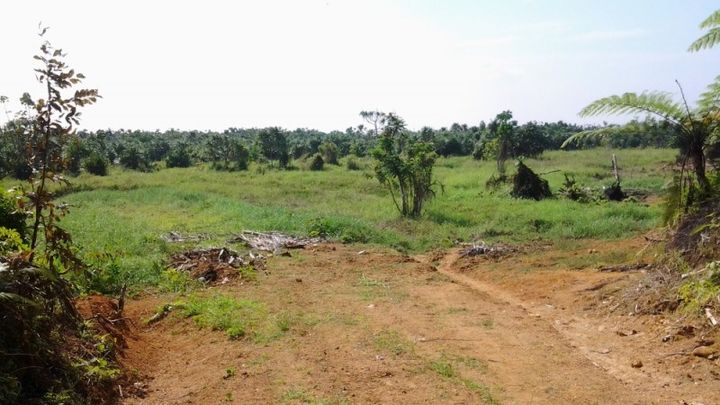
Farming in Fiji
Donation protected
The Island of Fiji is importing vegetables, fruits, and other food commodities at an average cost of $400 million dollars per year. These products can be produced on a local level but locals cannot meet the demand. One reason for high imports is the tourist industry, bringing in an estimated 1.5 million people each year. With a different diet and lack of farming education the locals cannot meet the supply of vegetables and fruits on a local level.
My goal is to start a four acre farm planting tomatoes, bell peppers, lettuce and celery. When the four acres is producing on a optimal level with markets to fill, the farm will then expanded to include more land and products. I need $20,000 to purchase equipement like chains saws, brush cutters, rototillers, seeds, transplants to name a few. The full business plan can be viewed on GrowFiji.com to get the full details.
So why Fiji? well here some reasons why I have an advantage.
I grew up in Fiji and migrated to the United States in 1985 when I was ten years old. My family lived in Suva, Fiji's capital and I attended Nabua and Gospel Primary School. Many of my relatives still reside on the Island and we have stayed in touch throughout the years. After spending twenty five years in the States I decided it was time to visit where I had grown up. Upon my return I noticed much had not changed, the beauty of the land, amazing climate and gracious people made me realize that I was finally back home.
Even though much had not changed, I did notice that the potential for Fiji is extremely underutilized. The land is plentiful and unused, the rains come consistently making everything green, the rivers flow from mountain top to the seas. The ocean is warm and clear with plentiful corals and fish. The reefs surround the island with waves crashing upon them.
Much of the land still belongs to tribal members which has caused progress to occur slowly. The issue of land is near and dear to the Fijian's because that is how we identify where we are from. When a native is born they belong to their father's village so when one might ask, "Where you are from?" the person will identify the village of their father.
As of today I still hold a Fijian passport. I am from the Rewa district and the village I belong to is Lominakoro. The names of all of my brothers and sisters who were born there are registered members of this village as well.
Although progress is slow among the native Fijian's, many businesses have opened by immigrants from other countries such as England, India, Australia, New Zealand and China. The tourist industry has been the fastest growing. As more people vacation in Fiji the demand for fresh vegetables, fruit, dairy and protein have increased dramatically with very little production on the Island.
According to the Fiji Bureau of Government Statistics, Fiji is importing vegetables, fruits, meat and dairy products at an average cost of four hundred million dollars per year. Most of the foods being imported can be grown or produced locally. My goal is to start a small farm growing vegetables and fruit then expanding into other areas. My vision for the project is to set up a farm, work and train with my staff to eventually allow them to take over the work load, while I handle sales, marketing, managing, and expansion to diversify the types of products Grow Fiji produces.
The key advantages of production in Fiji is low start up costs and labor costs, high rainfall, tax incentives, high import food bill, acres upon acres of unused land and the ability to grow food year round due to climate. Even though my goal is to have a big operation the best approach is to start on a miniature scale. The expansion will happen once Grow Fiji is producing quality product, at a consistent rate, with established markets to sell to, and a good, solid work team.
I arrived in Fiji on March of 2014 and began work for a farm site. The first farm will be set in Suva, Nasinu, in the village of Nakasi Naulu. Five acres has been leased for twenty years with room to expand the growing area. Two large ponds occupy the area for irrigation and drainage for the rainy season. Trees are plentiful in the area for wind breaks, and grass occupies the rest of the zone. A drive way and drains have been put in place with more trees to be cleared. The grass has to be cut, tree stumps removed and tillage. Then planting phase will start.
It is nine and a half miles from Suva which has a estimated population of three hundred and thirty thousand people. Fourteen supermarkets are located along the Queens highway, including the large farmers market in Suva.
I have set up a business plan, photos of the land and other information on my web page at growfiji.com
Photos of the farm location;
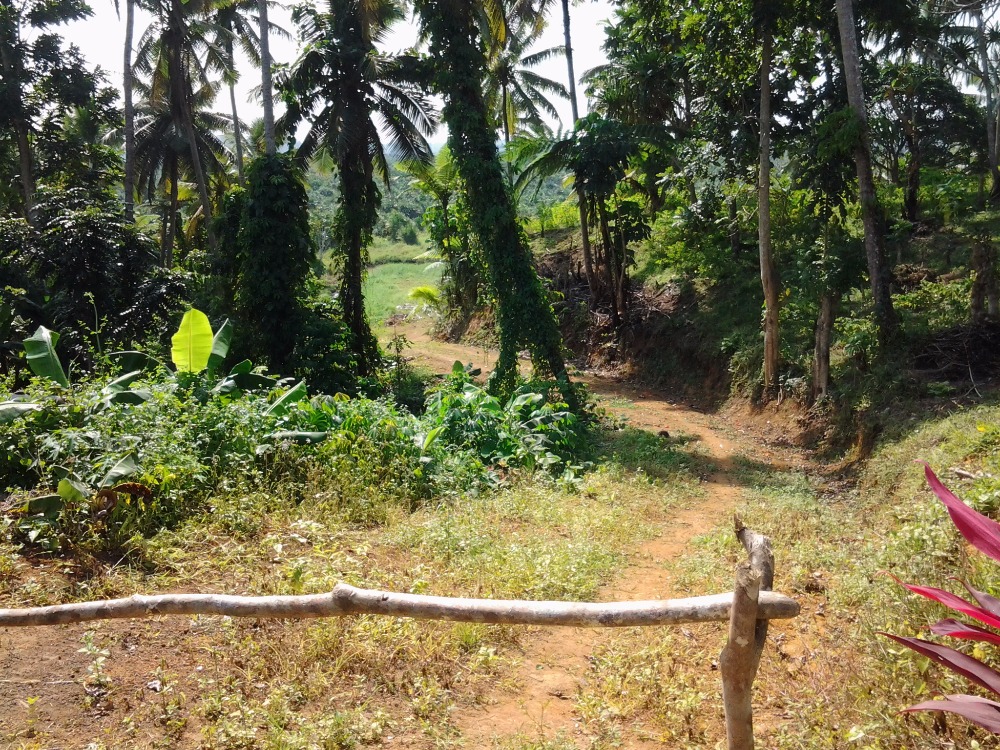
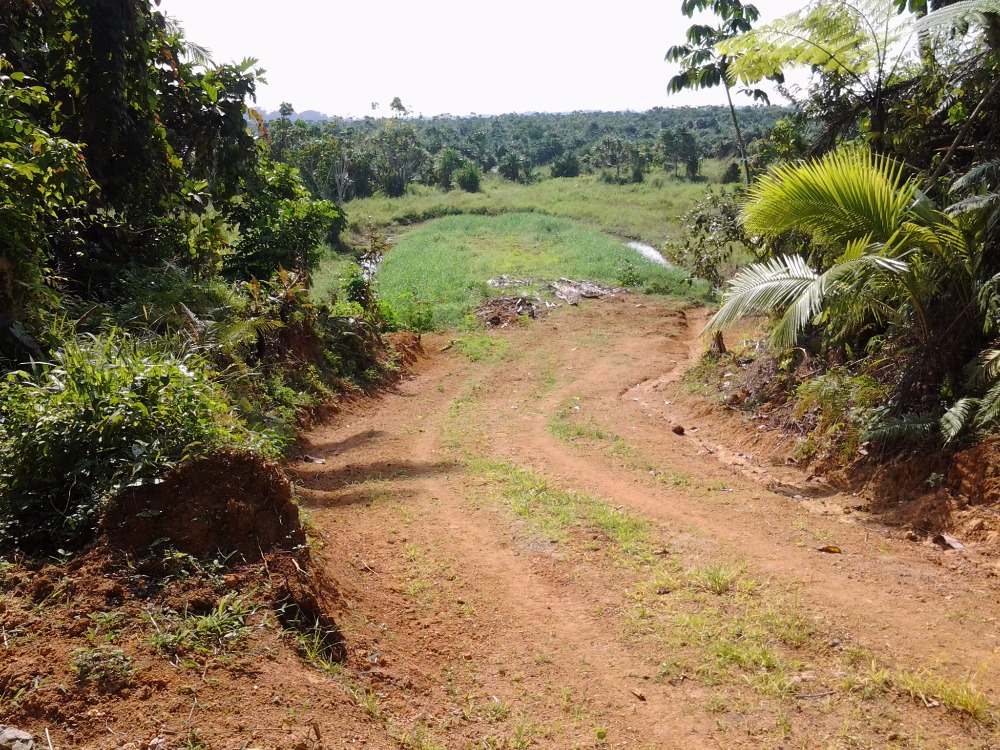
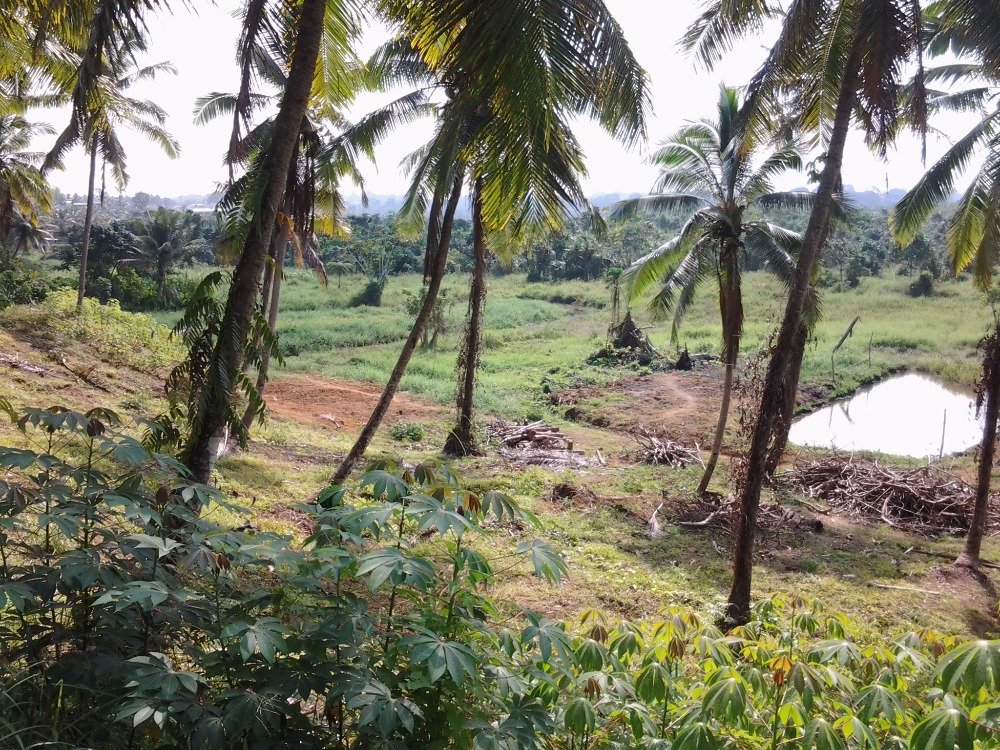
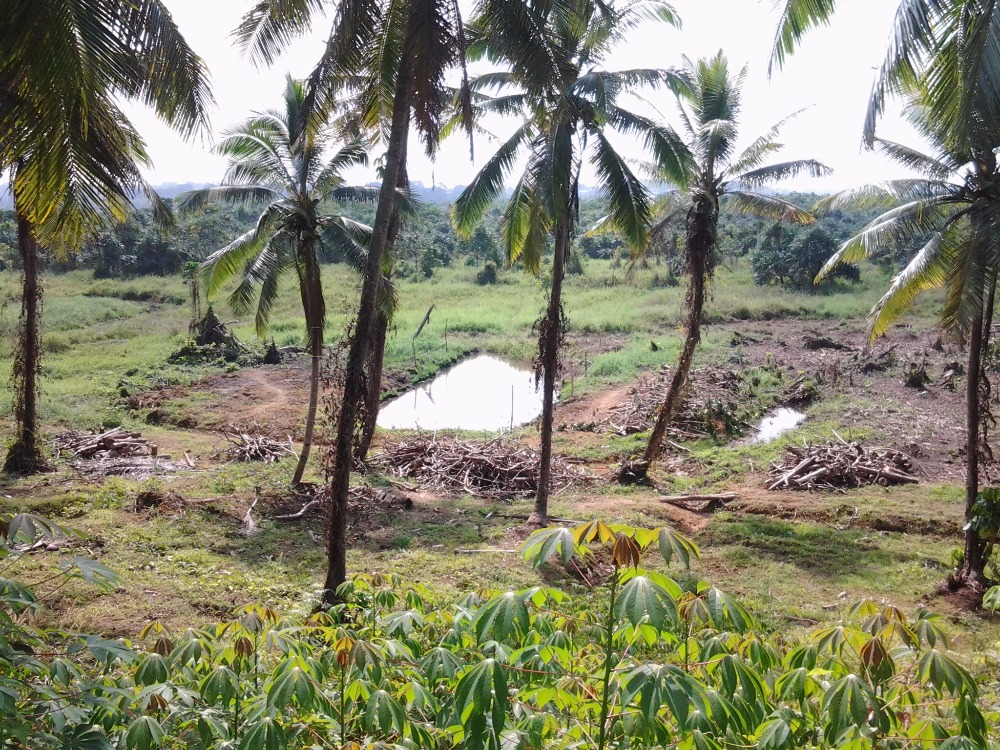
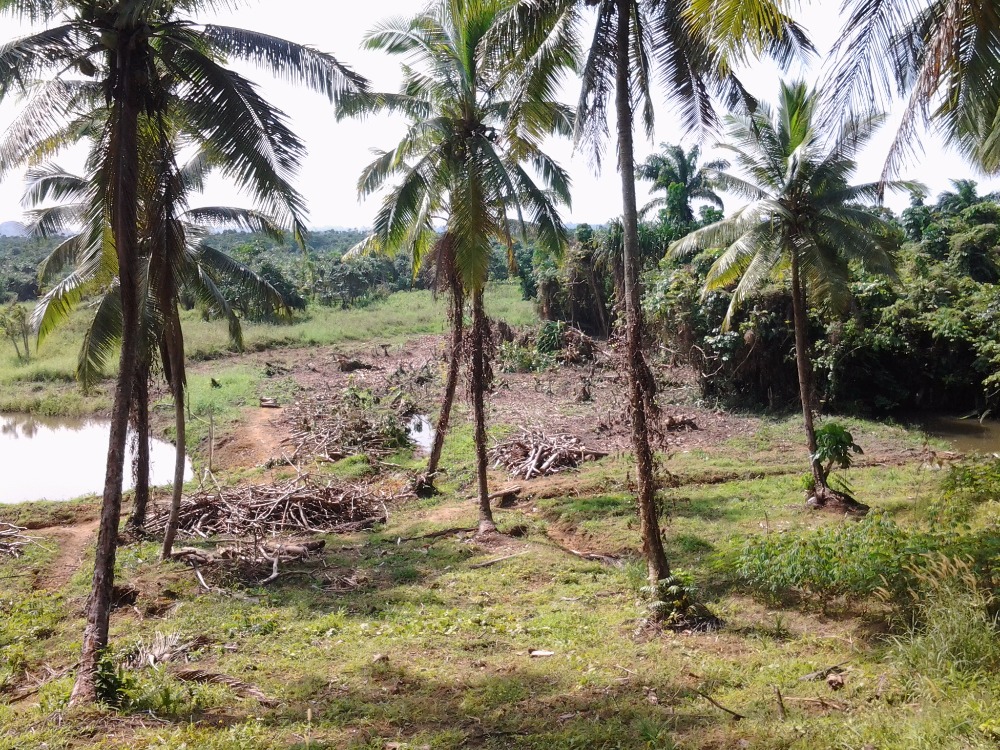
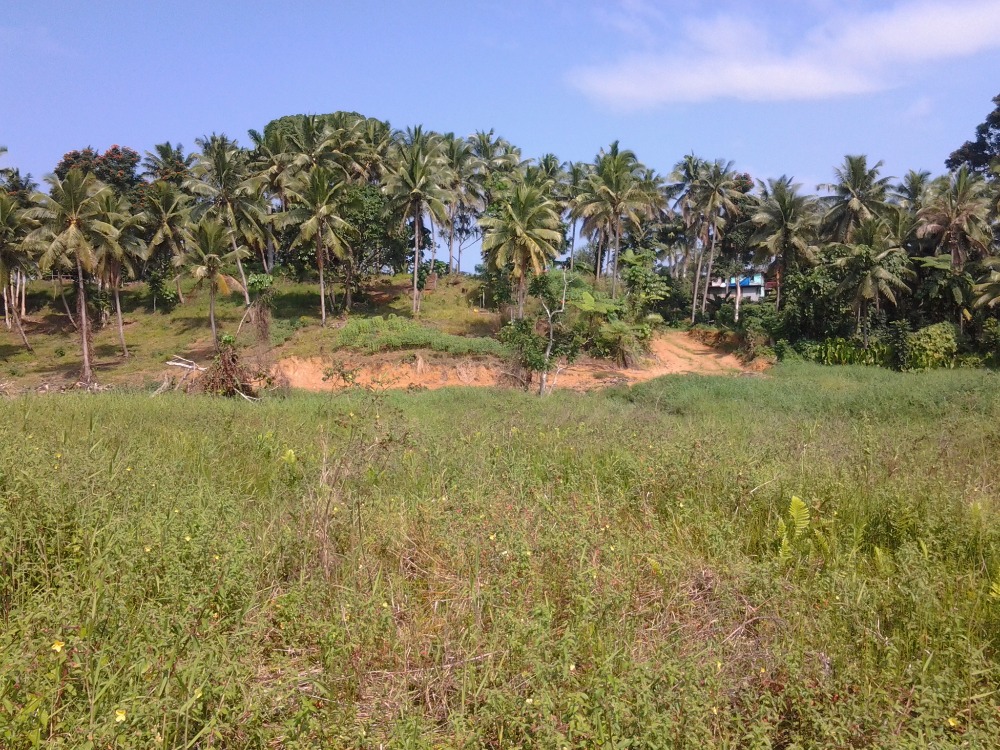
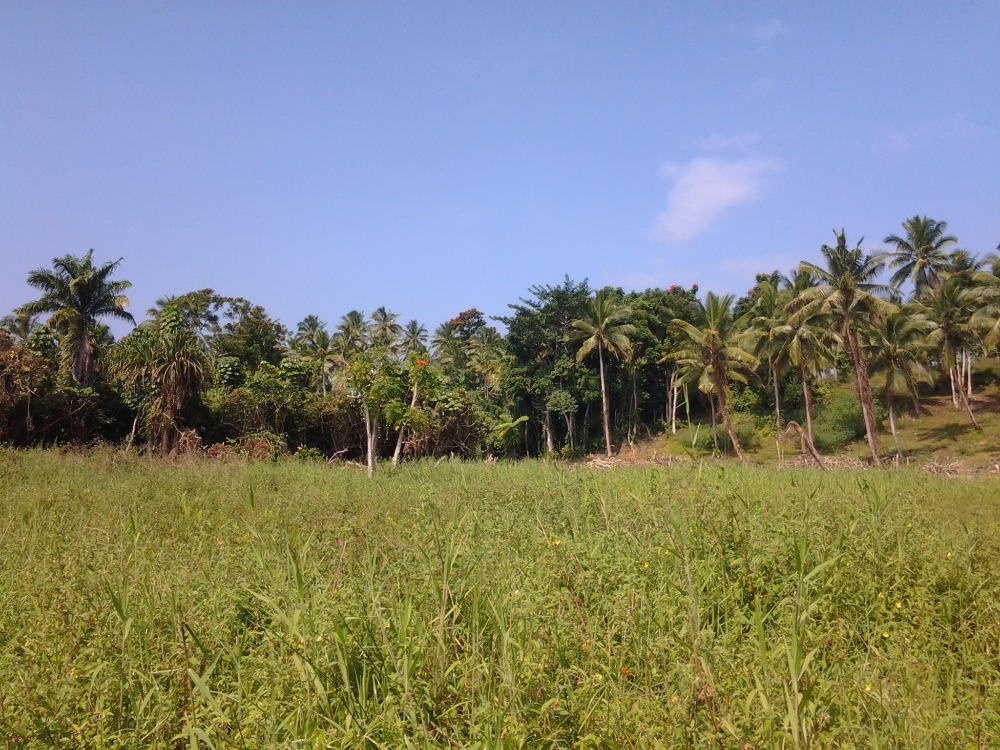
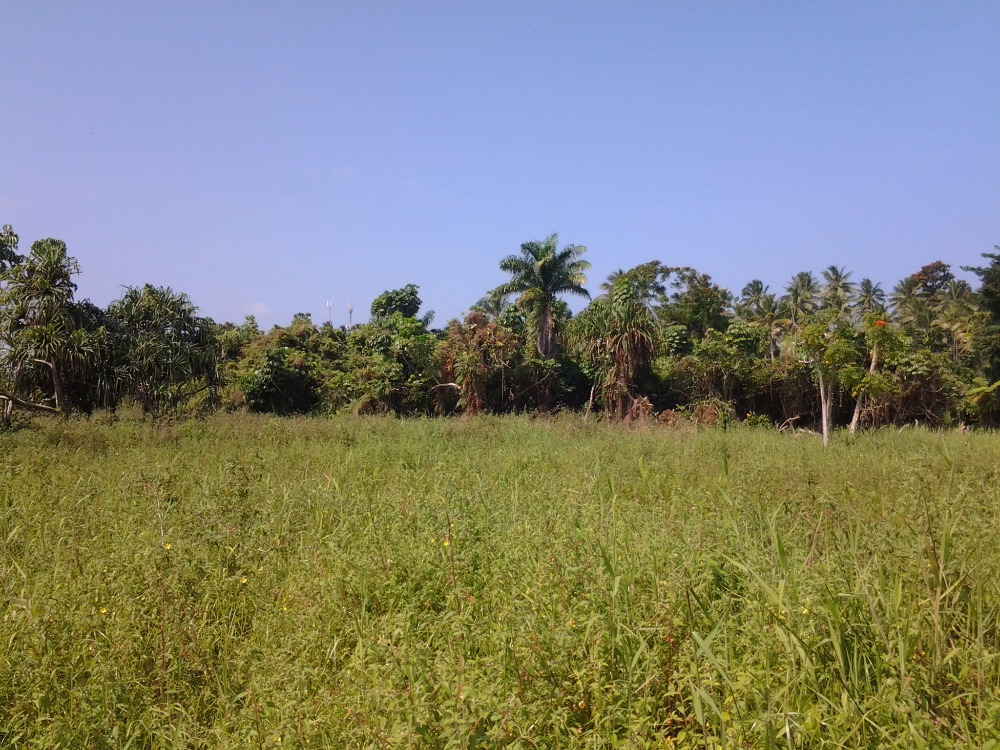
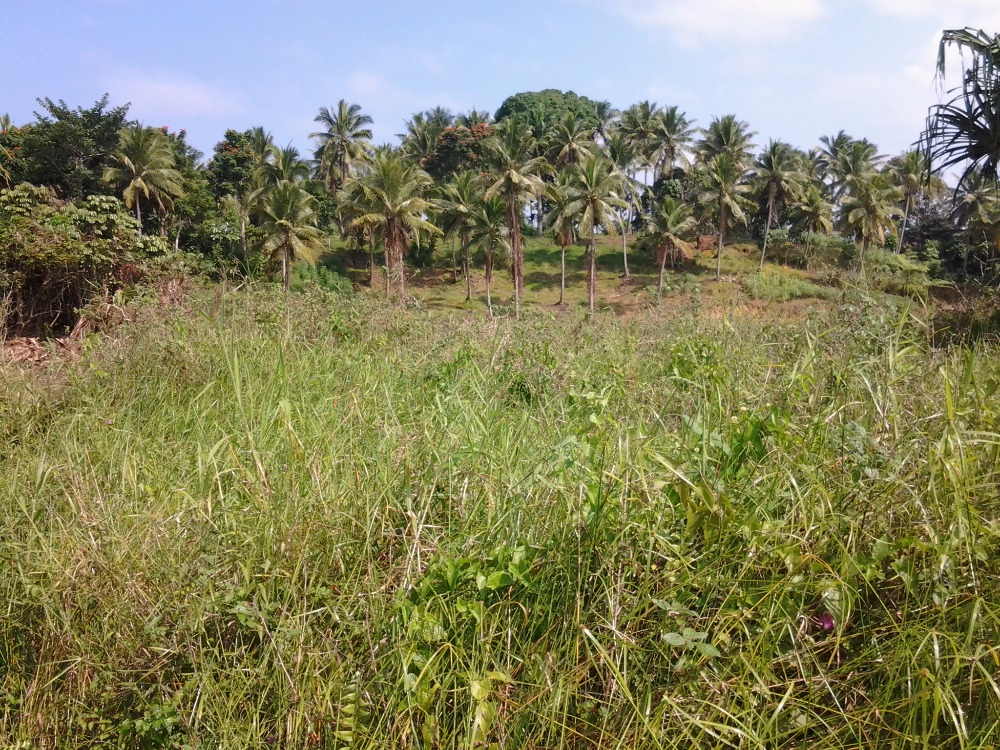
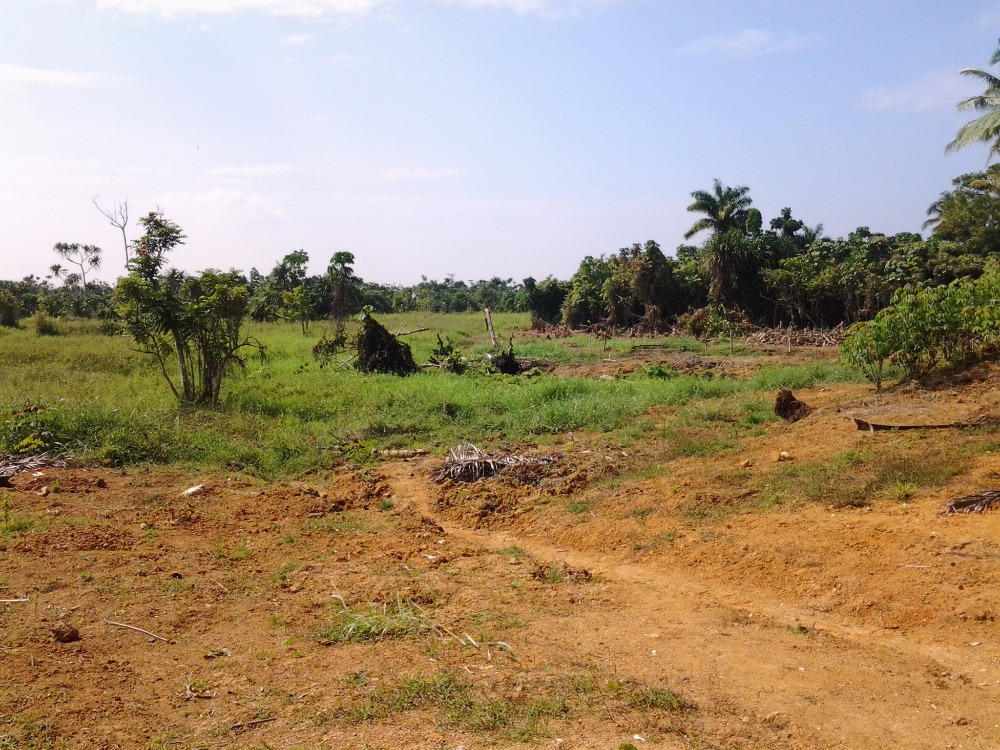
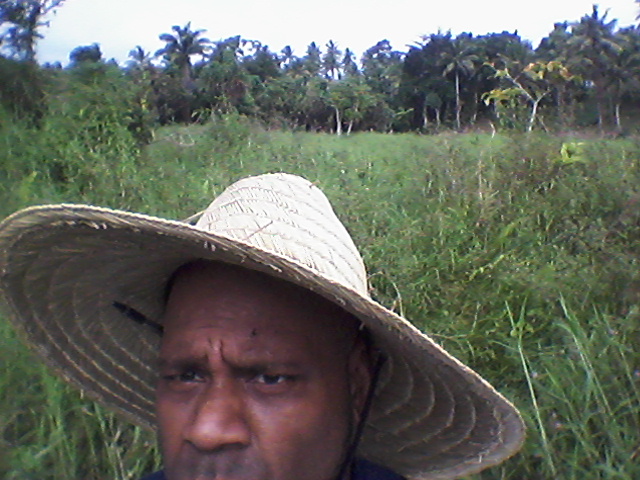
I did get some snorkeling in
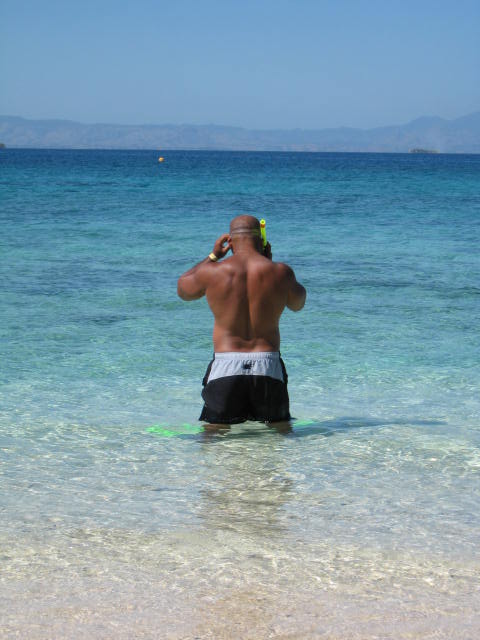
Cheers, so when you think about coming out to Fiji know that you got a chill spot with George. Shelby my wife and Sera.
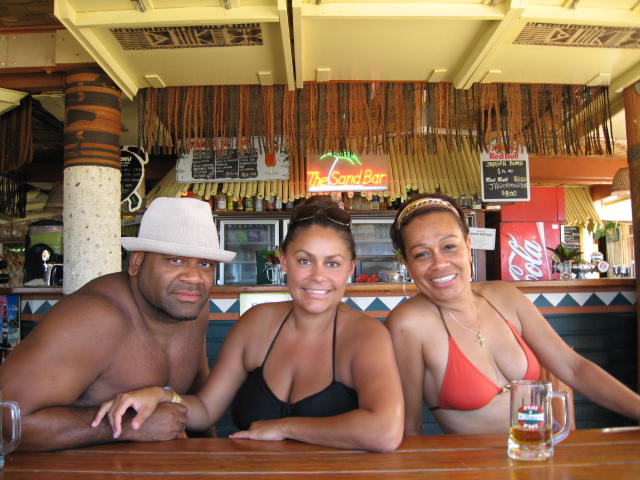
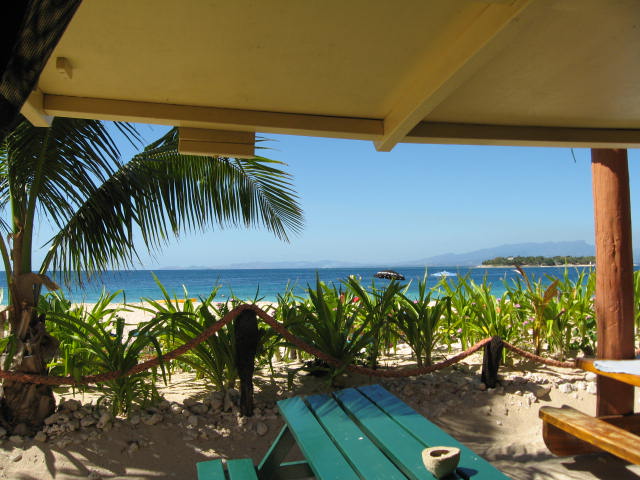
These pictures have nothing to do with farming. It is the beauty of Fiji and being able to produce vegetables, fruits and other food products in this environment that make it so unique.
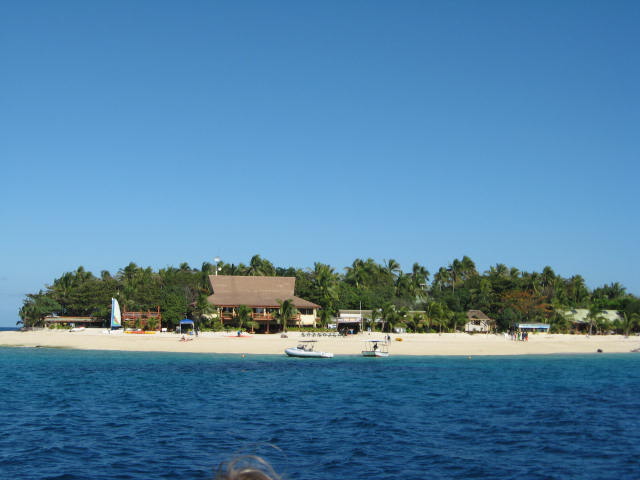
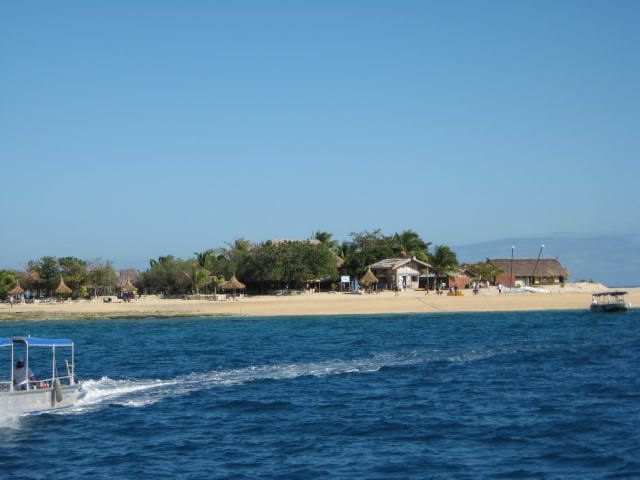 At the village with Derek, Batiri Nadroga.
At the village with Derek, Batiri Nadroga.
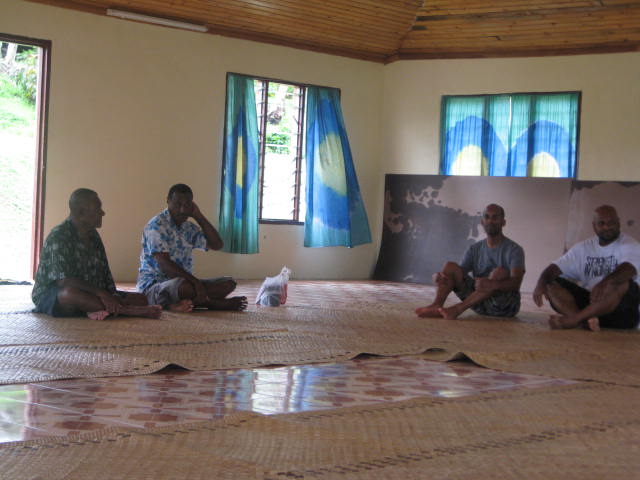
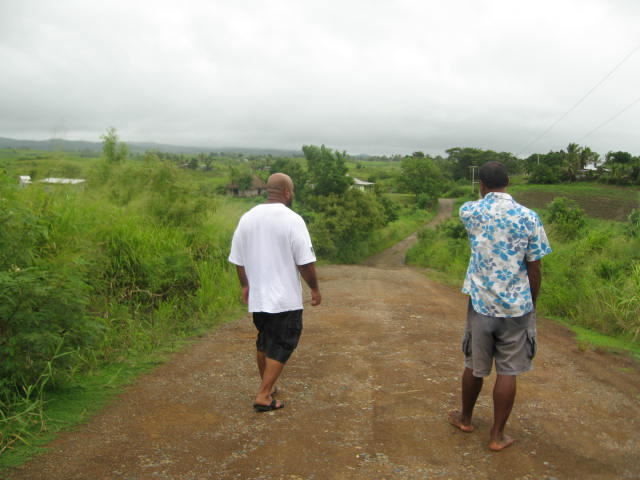
High lands Naitasiri
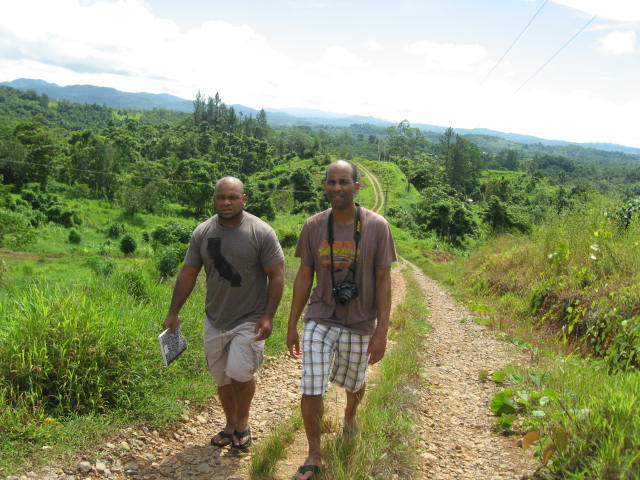 High land adventures water rafting. Out door type of lifestyle.
High land adventures water rafting. Out door type of lifestyle.
Cloud Break surf if you are good enough. I know the waves are big in the states but I think we got something on it.
My goal is to start a four acre farm planting tomatoes, bell peppers, lettuce and celery. When the four acres is producing on a optimal level with markets to fill, the farm will then expanded to include more land and products. I need $20,000 to purchase equipement like chains saws, brush cutters, rototillers, seeds, transplants to name a few. The full business plan can be viewed on GrowFiji.com to get the full details.
So why Fiji? well here some reasons why I have an advantage.
I grew up in Fiji and migrated to the United States in 1985 when I was ten years old. My family lived in Suva, Fiji's capital and I attended Nabua and Gospel Primary School. Many of my relatives still reside on the Island and we have stayed in touch throughout the years. After spending twenty five years in the States I decided it was time to visit where I had grown up. Upon my return I noticed much had not changed, the beauty of the land, amazing climate and gracious people made me realize that I was finally back home.
Even though much had not changed, I did notice that the potential for Fiji is extremely underutilized. The land is plentiful and unused, the rains come consistently making everything green, the rivers flow from mountain top to the seas. The ocean is warm and clear with plentiful corals and fish. The reefs surround the island with waves crashing upon them.
Much of the land still belongs to tribal members which has caused progress to occur slowly. The issue of land is near and dear to the Fijian's because that is how we identify where we are from. When a native is born they belong to their father's village so when one might ask, "Where you are from?" the person will identify the village of their father.
As of today I still hold a Fijian passport. I am from the Rewa district and the village I belong to is Lominakoro. The names of all of my brothers and sisters who were born there are registered members of this village as well.
Although progress is slow among the native Fijian's, many businesses have opened by immigrants from other countries such as England, India, Australia, New Zealand and China. The tourist industry has been the fastest growing. As more people vacation in Fiji the demand for fresh vegetables, fruit, dairy and protein have increased dramatically with very little production on the Island.
According to the Fiji Bureau of Government Statistics, Fiji is importing vegetables, fruits, meat and dairy products at an average cost of four hundred million dollars per year. Most of the foods being imported can be grown or produced locally. My goal is to start a small farm growing vegetables and fruit then expanding into other areas. My vision for the project is to set up a farm, work and train with my staff to eventually allow them to take over the work load, while I handle sales, marketing, managing, and expansion to diversify the types of products Grow Fiji produces.
The key advantages of production in Fiji is low start up costs and labor costs, high rainfall, tax incentives, high import food bill, acres upon acres of unused land and the ability to grow food year round due to climate. Even though my goal is to have a big operation the best approach is to start on a miniature scale. The expansion will happen once Grow Fiji is producing quality product, at a consistent rate, with established markets to sell to, and a good, solid work team.
I arrived in Fiji on March of 2014 and began work for a farm site. The first farm will be set in Suva, Nasinu, in the village of Nakasi Naulu. Five acres has been leased for twenty years with room to expand the growing area. Two large ponds occupy the area for irrigation and drainage for the rainy season. Trees are plentiful in the area for wind breaks, and grass occupies the rest of the zone. A drive way and drains have been put in place with more trees to be cleared. The grass has to be cut, tree stumps removed and tillage. Then planting phase will start.
It is nine and a half miles from Suva which has a estimated population of three hundred and thirty thousand people. Fourteen supermarkets are located along the Queens highway, including the large farmers market in Suva.
I have set up a business plan, photos of the land and other information on my web page at growfiji.com
Photos of the farm location;











I did get some snorkeling in

Cheers, so when you think about coming out to Fiji know that you got a chill spot with George. Shelby my wife and Sera.


These pictures have nothing to do with farming. It is the beauty of Fiji and being able to produce vegetables, fruits and other food products in this environment that make it so unique.

 At the village with Derek, Batiri Nadroga.
At the village with Derek, Batiri Nadroga.

High lands Naitasiri
 High land adventures water rafting. Out door type of lifestyle.
High land adventures water rafting. Out door type of lifestyle.Cloud Break surf if you are good enough. I know the waves are big in the states but I think we got something on it.
Organizer
George Keiaho
Organizer
Ventura, CA